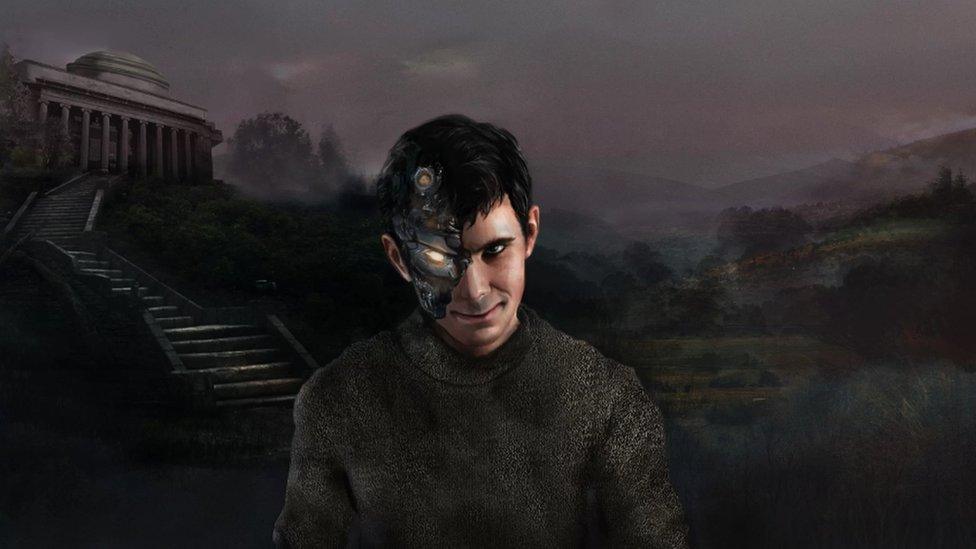MIT invites you to control a human on Halloween
- Published

Would you like to control another human being and experience what it would be like to be inside their mind?
Massachusetts Institute of Technology has built a software program called BeeMe, external that enables web users to suggest actions for a hired actor to perform.
From 23:00 ET on Halloween, the net is invited to help a human player in his quest to defeat an "evil AI".
MIT wants to see what happens when a crowd of users directs another human as it wishes - within reason.
Premise
When the social experiment begins, users will be able to suggest custom actions and then vote on which action the player should take next.
Allow X content?
This article contains content provided by X. We ask for your permission before anything is loaded, as they may be using cookies and other technologies. You may want to read X’s cookie policy, external and privacy policy, external before accepting. To view this content choose ‘accept and continue’.
The top-voted actions will then be performed by the actor, who surrenders his free will for the duration of the experiment.
Users will be able to hear and see what the actor experiences, from his point of view. But they will not be able to make him perform any commands that might endanger his dignity, privacy or well-being.
MIT's researchers are keen to see whether internet users can work together to issue a consistent series of commands to the actor that help complete the game, or whether the commands will be discordant.
Twitch Plays Pokemon
The MIT social experiment is somewhat similar to Twitch Plays Pokemon, a viral experiment in 2014.
An anonymous programmer from Australia streamed an emulation of the 1998 GameBoy video game Pokemon Red on a Twitch channel.
Users typed in commands like "up", "down", "left" or "right" as comments in the channel's chat room, and the game was completed in 16 days.
During the experiment, the Twitch Plays Pokemon channel typically had more than 80,000 viewers at any time and holds the Guinness World Record for having the most participants - 1,165,140 players - in a single-player online video game.
"It's an interesting experiment that is going to test the crowd, more than the person," Dr Bernie Hogan, a senior research fellow at the Oxford Internet Institute, told the BBC.
"It's a conversation starter - a way to understand emergent decision-making."
He said the activity - in which a decision is made by a collective - is not a new idea.
"It will be really silly at first, kind of anarchic. Some people [will] get bored but some will stay," he predicted.
"Either the audience will come up with another way to work it out themselves beforehand, or the audience will change over time.
"So the motivated ones stay on and the ones who feel their choices are never represented leave."
- Published26 October 2018

- Published2 June 2018
